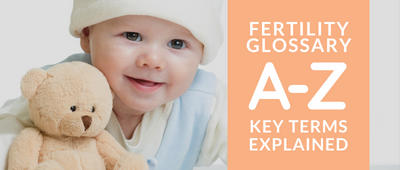
Published March 2022
"Despite affecting 10% of females from puberty to menopause, endometriosis remains widely unknown, a hidden disease. Alarmingly, awareness is much lower in younger women, where over half do not know what endometriosis is. We all have a role to play in turning this around and taking menstrual and pelvic pain seriously; whether supporting people in the workplace to manage their condition alongside their career; healthcare practitioners supporting diagnosis; teaching menstrual wellbeing in all schools across the UK; or simply raising awareness of the symptoms so that people know if what they are experiencing is “normal” and it is no longer a taboo subject.
This March, important conversations must be had so we can live in a world where menstrual health issues, including endometriosis, are recognised and understood”.
Emma Cox, Chief Executive of Endometriosis UK

In a survey recently undertaken by Endometriosis UK, they found that;
- 54% of people do not know what endometriosis is, increasing to 74% of men
- 62% of women between the age of 16-24 don’t know what endometriosis is
- 45% of women are unable to name any symptoms of the condition
This Endometriosis Awareness Month, we’re sharing facts and figures about Endometriosis to help people understand the condition and raise awareness of the disease.

Endometriosis in the UK and globally:
- The condition was first discovered microscopically by Karl von Rokitansky in 1860, although it was documented in medical texts over 4,000 years ago.
- In the UK, around 1.5 million women and those assigned female at birth are currently living with the condition, regardless of race or ethnicity. This percentage of the population is similar to the numbers affected by diabetes or asthma
- According to Endometriosis.com, a global awareness charity, the condition affects an estimated 176 million women worldwide.
- Endometriosis can affect women from puberty to menopause, although the impact may be felt for life.
- Endometriosis does not necessarily cause infertility, but there is an association with fertility problems and subsequent complications during pregnancy

Can I still get pregnant with Endometriosis?
It is estimated that 60-70% of women with endometriosis can still get pregnant spontaneously. However, if you have been trying to conceive for more than six months and your partner's sperm is healthy, it is recommended that you speak with your doctor or a fertility specialist who can help to diagnose the exact problem and advise on the best solution to suit your particular circumstances.
Can any fertility treatments help me fall pregnant?
Because Endometriosis can affect the fallopian tubes and ovaries, it is possible that endometrial tissue may be causing a blockage, meaning that the sperm cannot reach the egg naturally to fertilise it. In this instance, treatments such as IVF may be required. These procedures can ensure that a healthy fertilised embryo is placed back into the uterus to sustain a pregnancy.
If you are concerned, it is best to discuss your conception options with a medical professional, before you start trying to conceive. Your doctor or specialist can discuss options with you and help you understand what treatment may be required and how you will be monitored throughout the term of your treatment/pregnancy to ensure you have a safe pregnancy, birth and healthy baby.Get in Touch:
If you suffer with Endometriosis, Dr Koita, our Fertility Consultant can provide the best advice to suit your immediate requirements and help you on your fertility pathway, whether you decide to preserve your fertility or are seeking assistance to start a family. You can book a fertility consultation for trusted and meaningful advice at any stage of your fertility journey.
Book an online consultation with Dr Koita here.






